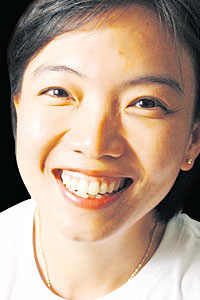
Sunant Somjak, 58, shook his head in dismay when I mentioned to him the farmers who still want to use hazardous chemicals like glyphosate, paraquat and chlorpyrifos. Standing against the chemicals, he believes that killing lives or even harming Mother Nature is a sin.
"Those who use the chemicals to kill even tiny bugs must be sinners because they want to destroy lives. It is against the principles of organic farming. I use herbal products to chase them away. I don't kill them," he said.
The three chemicals are currently part of a big national debate following the National Hazardous Substances Committee's (NHSC) decision last week to postpone a ban on paraquat and chlorpyrifos for six months, while restricting the use of glyphosate. Public opinion was split. But for Sunant, his standpoint hasn't changed.
Sunant is a farmer in Ban Don Chiang in Chiang Mai's Mae Taeng district. He has joined a group that has practised organic farming for more than a decade. Even after all these years, his group is still small.
Sunant used to grow rice with conventional farming methods, like other farmers in his village. He used synthetic chemical fertilisers, pesticides and herbicides in his field. Like his neighbours, he believed the salespeople who lured him to buy seeds and chemical products with a promise to buy his produce in return. But the promise was rarely kept.
Whenever there was a plant-disease outbreak, the farmer talked to other farmers. They consulted with a community leader, who brought the topic to agricultural officers. They advised the farmers to buy this or that chemical. The more the farmers used chemical compounds, the more debts were piled up.
In addition, the chemicals made Sunant sick. He even felt that he put his family's health at risk.
"After spraying the chemicals, I returned home to wash my hands. I turned on the faucet. It was the same faucet that my kids used, and also the same spot where my wife washed dishes. They were indirectly exposed to hazardous chemicals without knowing it.
"I also remembered the pungent smell of chemicals hanging in the air while my family and I were in our house. While we were sleeping, we breathed it in," he recalled of the time when he used the chemicals for years. He felt tired and wanted to find a solution.
Around 1999, he and some of his neighbours had a chance to join an organic workshop in Ban San Pa Yang, about 5km south of his village.
Later, they formed an organic farmer group. They stopped using every chemical for three years and gradually changed to an organic farm. Following the principles of the sufficiency economy, they grew plants and vegetables for their own consumption and sold the extras. Sunant knew if he continued on the same path, his health would get worse. And he didn't want to destroy the balance of nature, either.
It was a bit difficult during the early years, after he stopped using the chemicals. His volume of produce dropped. His vegetables no longer looked appealing. Not many people bought his vegetables at that time because most consumers wanted vegetables without holes in the leaves and that were otherwise attractive.
He and his group did not give in, because his goal was not to get rich or achieve high yields. His goal, he said, was to have a healthy life and find happiness while he still can.
"I remember when I was young, I followed my parents to our rice field. When I was thirsty, I could drink water from our farm. It was fresh and cold. The proverb of 'nai nam mi pla nai na mi khao' ['there is fish in the waters, rice in the fields'], implying fertile land and natural abundance, had been true only in the past. But today who dares to drink water in a rice field, since it is full of chemicals? If we don't stop using them, how are our kids going to live?" he said.
Today, Sunant's farm is a role model among organic farms. On his 20 rai plot of land, he has two ponds, on which he raises freshwater fish like pla taphian (silver barb) and pla salid (snakeskin gourami). The water is also used for his farmland. He grows rice and many kinds of herbs and vegetables, as well as fruits and hardwood trees. He also raises chickens for eggs.
On some parts of his farm, he plants trees with signs of hotel names because he works with Pur Project, a social enterprise from France that helps businesses improve the farming-supply chains by working directly with local farmers and helping them gear toward sustainability. He plants and helps them take care of trees like mangoes.
His raised-floor wooden house is cozy. Without air-conditioning, his house has good airflow. There is no unpleasant smell on the farm. The air is also fresh.
"Growing crops in an organic way makes me happy. My family is also happy. Our health and our environment are healthy. For me, this is what I dream of. This is my real happiness."
His dream can come true only when morality triumphs greed. This is perhaps too complicated to comprehend for those politicians who decided to lift the ban of those three hazardous chemicals.
Karnjana Karnjanatawe is a travel writer for the Life section of the Bangkok Post.
